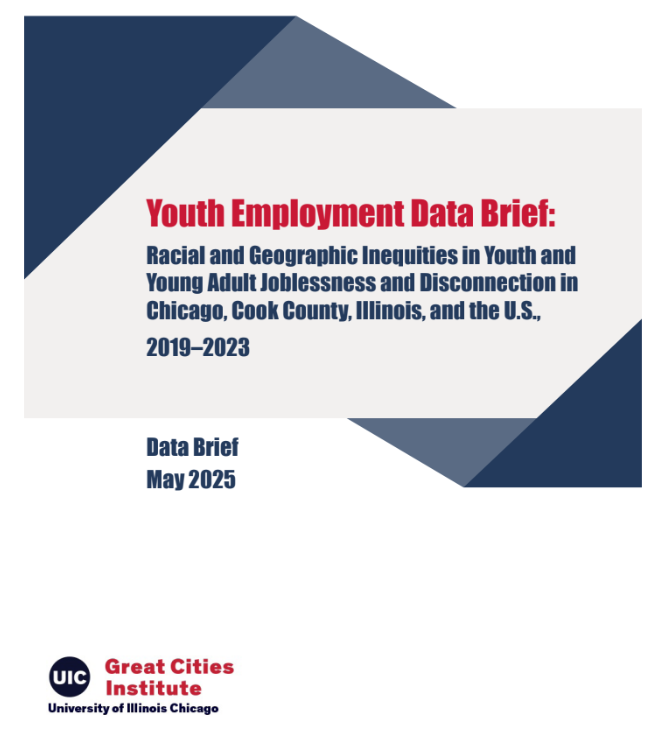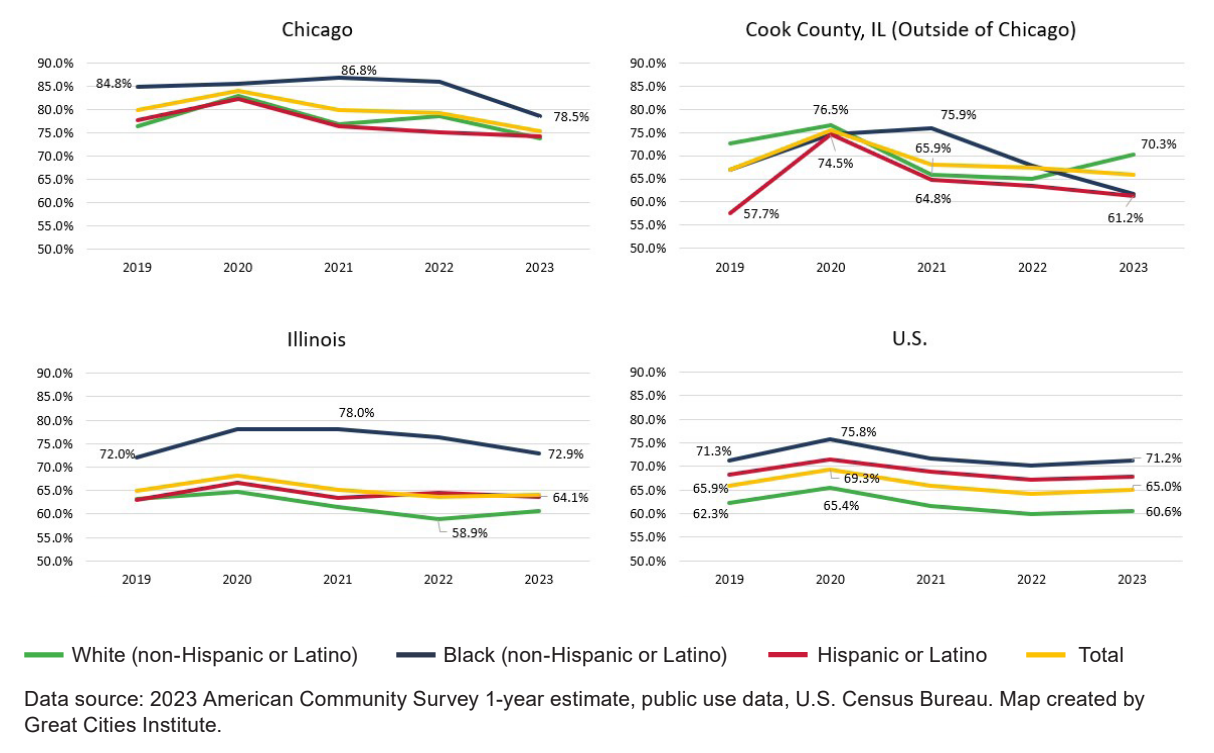Great Cities Institute Releases New Youth Jobless Report
As part of its ongoing commitment to provide timely research and data on youth employment in Chicago and Illinois, the Great Cities Institute (GCI) has released its latest data brief, “Youth Employment Data Brief: Racial and Geographic Inequities in Youth and Young Adult Joblessness and Disconnection in Chicago, Cook County, Illinois, and the U.S., 2019–2023.” Commissioned by the Alternative Schools Network, this new report analyzes the most recent five years of census data to track trends in youth joblessness and disconnection from school and work, disaggregated by race, ethnicity, age, and geography.
Despite overall labor market improvements since the height of the COVID-19 pandemic, recovery has been incomplete and uneven. Young people of color, especially Black and Latino youth in Chicago, remain disconnected from both work and school at alarmingly high rates. These persistent disparities threaten long-term economic mobility, community stability, and the future prospects of Chicago’s next generation.
Key findings include:
-
-
Exceptionally High Joblessness: In 2023, over 78% of Black 16- to 19-year-olds in Chicago were jobless, compared to 74.2% of Latino and 73.8% of White youth, rates well above national and state averages.
-
Persistent Disconnection: Black youth in Chicago remain significantly more likely to be out of school and jobless than their peers. In 2023, 14.3% of Black 16- to 19-year-olds were disconnected, more than four times the rate for White youth.
-
Uneven Recovery for Young Adults: Jobless rates for Black 20- to 24-year-olds declined in 2022 but rose again in 2023 to 47.6%, while rates for White and Latino peers steadily fell, widening racial disparities.
-
Stark Spatial Inequities: Maps show jobless and disconnected youth are concentrated in South, West, and Southeast Side neighborhoods in Chicago, where rates often exceed 80% for teens.
- Programmatic Impacts: The report reviews rigorous research showing that summer youth employment programs are a proven, cost-effective way to reduce violence, improve job readiness, boost academic outcomes, and build social-emotional skills:
- In Chicago, the One Summer Chicago Plus program produced a 43% reduction in violent crime arrests among participants and showed an 11:1 benefit-cost ratio.
- Studies from Boston and New York confirm that participants in summer jobs programs develop critical soft skills, build stronger ties to their communities and mentors, and achieve higher rates of academic success.
- Youth who work during high school are more likely to accumulate wealth, own homes, and participate in the stock market later in life.
-
A coalition of organizations across Illinois including the Alternative Schools Network and many youth advocacy groups are calling on state lawmakers to allocate $150 million in new funding for summer and year-round youth employment opportunities. Their goal: to employ at least 50,000 young people across Illinois, with a focus on communities most impacted by joblessness and disconnection. As the data in this report makes clear, this level of investment is urgently needed to address persistent inequities and help set the next generation on a path to success.
The report was covered by WGN, NBC 5 Chicago, WBEZ Chicago’s Fresh Air and Morning Edition, WBBM Newsradio 780 & 105.9 FM Late Morning News, WFLD (FOX) Good Day Chicago, and the WVON Morning Show with Ernest Fenton.
See GCI’s Associate Director for Economic and Workforce Development, Matt Wilson, discuss the report’s findings on WGN here: https://wgntv.com/video/chicago-youth-unemployment-report/10731467/




